Health
/ArcaMax

Tips to find the best air purifiers to protect against wildfire smoke
LOS ANGELES -- As buildings and brush continue to smolder in Los Angeles, a toxic soup of smoke, chemicals and particulate matter is being spread across the region by gusty winds, prompting a surge in interest in air purifying devices.
Web searches for "air purifier for wildfire smoke" in Los Angeles have increased by more than 5,000% since the...Read more
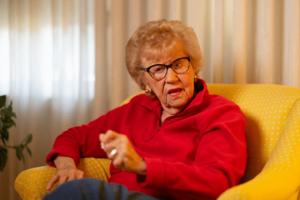
Laura Yuen: At 91, this Holocaust child survivor celebrates 80 years since her liberation
MINNEAPOLIS -- Eight decades after her family’s liberation from a Nazi labor camp, Reva Kibort sometimes feels the urge to call one of her four older siblings to ask something. A forgotten name of an uncle. A detail about their mother.
Then it dawns on her that she cannot. She is the only one left.
Kibort, 91, is the last living sibling from...Read more

LA fires: Is that GoFundMe account legit? How to spot scams when helping victims
LOS ANGELES -- Thousands of online GoFundMe fundraising campaigns have been created to support the victims of the devastating wildfires that have scorched portions of Los Angeles County, but officials are warning to be on the lookout for fraudulent GoFundMe accounts.
Since the first wildfire ignited Tuesday morning, GoFundMe campaigns created ...Read more

Lori Borgman: Headstands are so last century
Saturday morning began with a video text of one of the grands doing a wild gymnastics routine on an exercise mat in the middle of their family room. She was lunging, flipping and cartwheeling (barely clearing the sofa, the TV and a younger sister’s head), all to the soothing strains of “Who Let the Dogs Out?”
The antics culminated in a ...Read more

The Kid Whisperer: How to treat kids the way they REALLY want to be treated
Dear Kid Whisperer,
I have your book. There’s a lot in there about building relationships with students, and I’m wondering where to start. What is the single best way to build relationships with my first-grade students?
Answer: It will surprise you to know that I did not put the single most important and effective way to build ...Read more
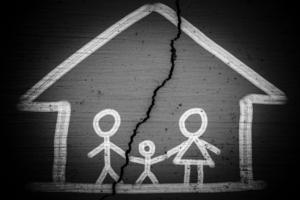
Ex-etiquette: It might be time for counseling
Q. My son is 9. His mother and I broke up a year and a half ago. Although we absolutely do not get along, we have been trying to share his time. We exchange every few days. Each time he has to leave my home, I see the happy little boy slip away. Sometimes he tells me he doesn’t want to go, but he can’t tell me why. I told his mother, but she...Read more
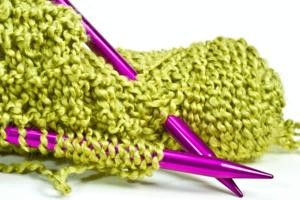
More than a hobby: Here's how 4 crafters maximize their credit cards
I started crafting — knitting — at the age of seven. My family was stationed at a military base near Suffolk, England, in the 1970s, and knitting was a required class at my elementary school.
But my crafting career almost ended before it began, because I despised knitting. Lucky for me, the teacher recommended I try crochet instead, and the...Read more

Jerry Zezima: Where the magic happens
Being a grandfather can be magical — as long as you don’t end up in jail.
That’s the lesson I learned recently when my wife, Sue, and I got together with our five grandchildren and their parents for a week in which I assisted in science experiments performed with a magic wand, was nearly bitten by a king cobra and trampled by a ...Read more

Chicago's FAME Center seeks to expand its footprint and its arts programming for kids across the city
CHICAGO -- South Loop’s FAME Center started in 2018 in what founder Sheila Fortson called “a broom closet” with just a few students and a piano. The nonprofit is now looking to become a major music and arts education landmark in Chicago with the purchase of a 56,000-square-foot historic building.
Matthew Thomas, 14, remembers that when he...Read more

'Not denied for past mistakes': Incarcerated cosmetology graduates walk stage in prison ceremony
LAS VEGAS -- Cosmetology students turned the tassels on their graduation caps after walking the stage inside Nevada’s women’s prison on Monday.
“This really did save my life,” said Amber Wharton, a member of the most recent graduating class of Expertise Cosmetology Institute’s New Path program.
Gwen Braimoh, the institute’s ...Read more

Best investments for military families
Members of the military and armed forces tend to lead busy lives and are often not on the same day-to-day work routine as everyone else. When it comes to investing, military members also do not have access to all of the same investment plans that workers in the private sector do. Their busy schedules may not leave them with enough free time to ...Read more

On Gardening: Blushing Bride receives rare honor
The blushing bride and her eye-catching straps put on quite the show last year. It’s so true, and I can imagine editors everywhere having palpitations as The Garden Guy goes rogue with seductive humor. Now that I have your attention, I am talking about Heart to Heart, Blushing Bride, Proven Winners "Caladium of the Year" for 2025. It is a ...Read more

Price per square foot: How and why to use it
Price per square foot, a metric often used in helping to determine a home’s value, can be a useful comparison tool. It’s a tricky concept, though, because a home’s price per square foot multiplied by its square footage doesn’t necessarily add up to an accurate fair market value. For example, homes with unique features typically command a...Read more

Divorce and your mortgage: Here's what to know
One of the biggest decisions divorcing couples face is what to do with their shared home. It’s often an emotional decision — and if the home has an outstanding mortgage, the situation gets extra complicated.
Here’s what to know about divorce and your mortgage.
Mortgage options in a divorce
Depending on the details of your mortgage, the ...Read more

Ask Anna: New year, same problems? Relationship ruts and starting fresh
Dear Anna,
I moved to a new city for work last month, leaving behind a "situationship" that never quite became official. Now he’s texting wanting to try long distance, saying the new year made him realize what he wants, which is, evidently, me. I'm torn between giving this another chance and making a completely fresh start in my new home. ...Read more

Erika Ettin: 5 top tips for dating in 2025
After 13 years of helping people find love (and sometimes dodging a few bullets along the way), I’ve seen the dating landscape evolve dramatically.
Let’s look at five tips for navigating the dating world this upcoming year.
1. Curate your dating profile like it’s a first impression (because it is)
Your dating profile is your personal ...Read more
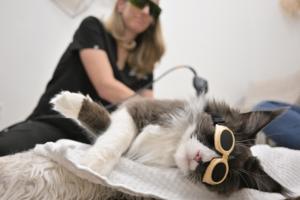
Kitty hot-stone massages and canine acupuncture: Specialty vet teaches old dogs new tricks
BOULDER, Colo. — Ruffian the champion show cat reclined on a fur pillow wearing tiny protective goggles to shield his eyes from the laser therapy being used to treat his inflamed joints.
Veterinary physiotherapist Kerry Kilgannon hovered a laser wand over Ruffian’s hips one December morning while using a dangling cat treat to bribe the ...Read more

The Kid Whisperer: How to prevent, mitigate and stop mean behaviors in the classroom
Dear Kid Whisperer,
I have a question regarding a situation in my classroom. I have my kids grouped at tables and have stressed to them that this is where we are for the year. I reminded them that sometimes we have to sit by people we aren't best friends with and have to work with people who we don't get along with, but we have to try. Here is ...Read more
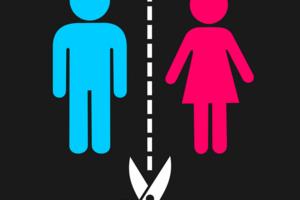
Ex-etiquette: Meeting someone new
Q.My ex and I split up six months ago and our children go back and forth between our new homes. We don’t have a formal parenting plan -- the split was amicable; we just share the kids every few days. They are 5 and 7. It seems to be working OK, but I have recently met someone new. I am afraid this will complicate things, and their mother will...Read more

Lori Borgman: It's snow problem; new weather terms are chill
"Stay tuned for a weather impact update," says the man on the television.
I have problems with the word impact and not just because it's one of those words that can be both a noun and a verb. Impact always reminds me of when my brother was a toddler and shoved a Red Hot up his nose. The Red Hot was impacted and our mother had to carefully ...Read more






















